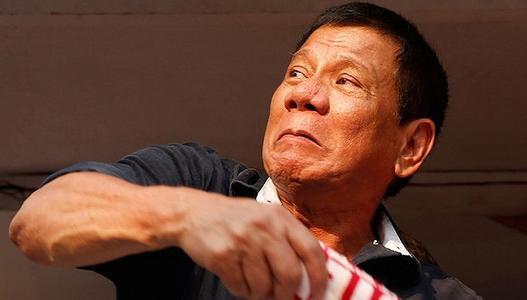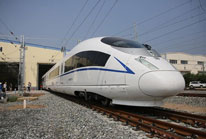


Philippine President Rodrigo Duterte said Tuesday that he expects bilateral talks with Beijing over the South China Sea issue within a year, according to the Philippine Star. He called on China to let Philippine fishermen enter the disputed waters of Huangyan Island, but added that when this possible dialogue occurs, "It's impossible [not to bring up the South China Sea arbitration award] … when we are face to face and we come up with hard facts."
The question is, however, what kind of negotiation with China does Duterte want? A functional and efficient one, or a useless, meaningless one? It seems that he might have neglected the bottom line that Beijing insists on - putting the arbitration award behind us.
China welcomes Manila to return to bilateral talks, but if the Philippines insists on the award as a precondition, the negotiations won't get off the ground.
After the curtain falls on the South China Sea arbitration farce, Manila has realized that now comes the hard part. Duterte's recent moves and remarks indicate he wants to ease the tension, including sending the country's former president Fidel Ramos as an ice-breaker in bilateral ties, as well as signaling he is open to shelving the arbitration award.
As a nation that is hungry for energy and lacks money and technology, Manila has limited cards to play. Repairing its relationship with Beijing is without doubt an optimal choice.
In the meantime, the South China Sea, which is home to over 3,000 species of fish, is always a focus of attention in the Philippines, one of the top fish producing nations in the world.
Unfortunately, given the illegal fishing, overfishing and clashes over sovereign disputes in the area, the worsening livelihoods of many of the coastal populations in the Philippines has become an urgent problem.
Huangyan Island has been a traditional fishing ground for both Chinese and Philippine fishermen. If both sides can jointly manage fisheries in the waters, setting aside controversies and collaborating on the fishing industry purely from an economic perspective, the process is bound to reduce hostile sentiment and create more opportunities for a wider range of cooperation, such as joint work on exploiting resources, maritime rescue, meteorological data exchange as well as disaster relief at sea.
All that is possible without necessarily involving a thorough solution to all the complexity in the waters.
An improved relationship between the two will be favorable for both sides. Otherwise, foreign forces will always have an excuse to keep stirring up troubles and driving a wedge between China and the Philippines. China welcomes bilateral dialogues with Manila, yet there must be no precondition attached to the talks, including the arbitration award.
 World's fastest bullet train to start operating next month
World's fastest bullet train to start operating next month Huangluo: China's 'long hair village'
Huangluo: China's 'long hair village' Spectacular bridge with one of the tallest piers in the world
Spectacular bridge with one of the tallest piers in the world Magnificent view of Hukou Waterfall
Magnificent view of Hukou Waterfall A glimpse of Stride 2016 Zhurihe B military drill
A glimpse of Stride 2016 Zhurihe B military drill US Navy chief tours Liaoning aircraft carrier
US Navy chief tours Liaoning aircraft carrier Chinese American woman wins Miss Michigan
Chinese American woman wins Miss Michigan Centenarian couple takes first wedding photos
Centenarian couple takes first wedding photos Traditional Tibetan costumes presented during fashion show
Traditional Tibetan costumes presented during fashion show Top 10 livable Chinese cities
Top 10 livable Chinese cities Top 20 hottest women in the world in 2014
Top 20 hottest women in the world in 2014 Top 10 hardest languages to learn
Top 10 hardest languages to learn China’s Top 10 Unique Bridges, Highways and Roads
China’s Top 10 Unique Bridges, Highways and Roads Nation’s first Mars mission to be launched in 2020
Nation’s first Mars mission to be launched in 2020 Firms help job applicants cheat on physical examinations toavoid discrimination
Firms help job applicants cheat on physical examinations toavoid discrimination With labor costs rising, Taiwanese businesses consider leavingmainland
With labor costs rising, Taiwanese businesses consider leavingmainland Writers need scope to criticize global society
Writers need scope to criticize global societyDay|Week